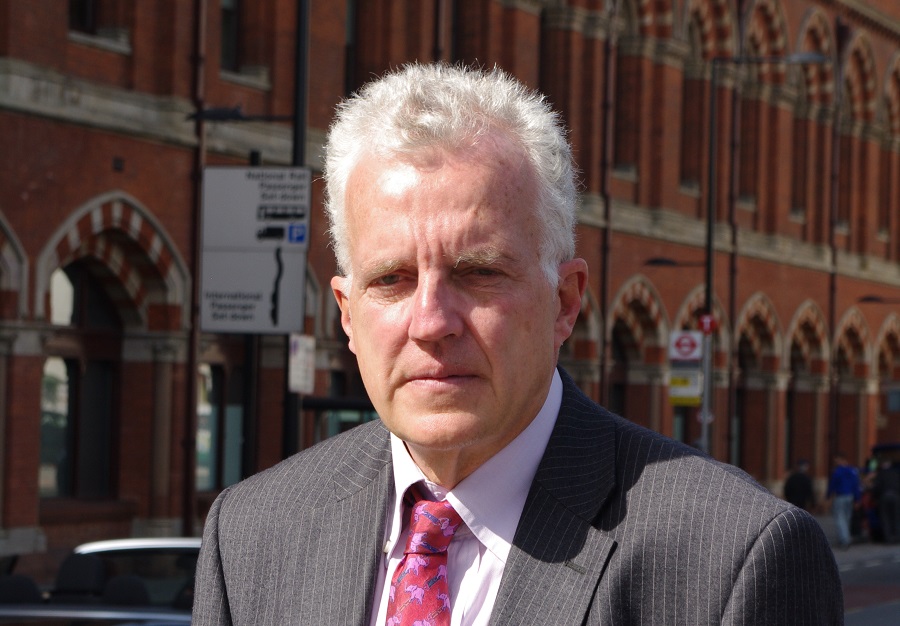A few weeks ago, my partner Deborah had to drive at short notice from London to the hospital in Bangor to see her mother who had suffered a stroke. When, back in the early 2000s, her father was ill there, parking had not been problem but now the situation had changed with ticket barriers barring her route into the car park.
After visiting her mother, she went to the machine to try to pay but it took neither cards nor notes and she did not have any coins. At the A&E she was advised that the only thing she could do was to go to a shop on the other side of the car park, where she had to buy chocolate to get change.
Back to the machine which produced a very flimsy piece of paper and the hospital car park is situated in a very windy, often wet, rather desolate spot. As she put the paper into the machine, a particularly violent gust of wind blew it away and despite chasing it, she could not catch the receipt as it headed for the welsh hills. So having suffered the shock of her mother’s stroke, the long drive from London, and the usual hospital-type stress, she trudged back into the main hospital reception feeling total despair, only to find two women who had had endured the same experience.
Eventually a kindly maintenance man came down and physically lifted the barrier for them, releasing them out of the car park. He was cheerful, understanding, and helpful, which was a huge relief. On the way back to her mother’s house, about 45 miles away, Deborah stopped in the car park of a large Tesco which of course was free to buy food.
The week after this incident, the Welsh Assembly Government announced that it was scrapping car park charges at hospitals and that by 2011 the ‘vast majority of NHS sites in Wales will have free parking for all’. It was an announcement that was widely welcomed by cancer charities and patients’ organisations. It seemed as a letter writer, Richard Armitage, to Local Transport Today suggested ‘a victory for common sense, of benefit to the environment and people’s health with a bit of enlightened fiscal policy thrown in for good measure’.
Except, as the Armitage suggests, perhaps it is not. Indeed, ‘free parking for all’ is not deliverable, just as having free roads without congestion is not a realistic objective. Taking the deterrent issue of charges away from hospital parking will ensure an influx of extra cars and no method to control them.
Indeed, the issue is actually fiercely complex and not solved by grand all encompassing political gestures. Hospital charges are, indeed, a pain and penalise people unlucky enough to have to visit them. They can even, ludicrously, lead to doctors who are dealing with an emergency being clamped. Or, as Deborah found out talking to a friend, people who have just seen a close relative die. Moreover, some people have absolutely no choice but to drive to a hospital, especially as smaller cottage hospitals have been replaced by big general institutions often on the edge of towns.
But free parking for all is a populist but unthought out response to the problem. There is a bigger picture, which it is the duty of politicians to consider. Policy makers cannot suggest that parking at hospitals should be free while simultaneously arguing that climate change is the biggest problem we face and encouraging people to use sustainable forms of transport.
Most regular users of hospitals get subsidised or free car parking. If car parking becomes free, then soon the car parks will fill up making it difficult for such users to find a place. At root it is about providing the right service. Sure, the replacement of people in ticket desks with machines that are frequently out of order leading to what the marketing people would call a ‘negative parking experience’ is a ludicrous attempt at cost saving. Indeed, outsourcing parking to faceless companies with only the profit motive is bound to lead to excessive clamping and intransigent enforcement of regulations. That’s the key to the answer. Bringing in car parking back in house where it will be operated by people sympathetic to the special needs of hospital users is the answer.
The problem is not so much the imposition of charges, but the outsourcing of the operation of the system. A policy of free parking for all, which effectively subsidises car drivers while handicapping other transport users who have to pay to access hospitals is not a rational policy. Ensuring that people like Deborah and all the other users of the hospital that day who struggled to get out of the car park do not endure that type of experience again should be.
